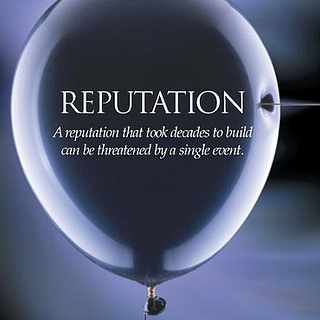


If Your Company Is Going Through a Public Scandal, Should You Leave?
Thanks to our friend and colleague, Linda Bluso, Founder & CEO of the Adaptive Knowledge Institute®, for the lead to this article from the Harvard Business Review:
Having your employer get caught in a public scandal is an agonizing professional experience. Even if your company comes out okay financially, it’s likely to have a tarnished reputation. How do you evaluate whether to stay or go? Where should you draw the line on what you’re willing to be a part of? Does staying constitute an endorsement of the company’s bad behavior when you did nothing wrong? And how should you weigh the company’s diminished standing against your future career prospects?
What the Experts Say
When your company makes headlines for all the wrong reasons, you’re put in an “extremely difficult position,” says Dorie Clark, a marketing strategist and the author of Entrepreneurial You. “All of a sudden, the place you associate with your work, your colleagues, and your projects is overridden in the public imagination,” she says. “It becomes a caricature. Your career becomes a gossipy punchline, and that is a very painful feeling for someone who is a serious professional.” It’s natural — and perfectly reasonable — to wonder if you should start looking for a new job. And yet, it’s rarely “super clear cut whether to stay or go,” says Amy Edmondson, a professor at Harvard Business School. “It’s a personal choice and a judgment call.” As you contemplate whether to remain or look for other opportunities, there are measures you can take to safeguard your reputation and your sanity. Here are some things to consider.
Don’t Self-Flagellate
First things first: Don’t beat yourself up. Working for a company that’s caught up in an ugly public scandal is stressful, exhausting, and shame-inducing. “You feel besieged,” says Clark. And you often feel guilty by association. Indeed, studies show that the impact of a scandal on employees is far more significant than anyone would have ever thought. Researchers call this the “moral spillover effect.” But unless you were, in fact, writing emissions cheating software for VW or creating fake accounts at Wells Fargo or staying silent when you knew about harassment at Fox News, “you didn’t do anything wrong,” says Edmondson. “You were just there. Don’t be too hard on yourself.” (If you are at fault that is another story.) Pay special attention to your emotional needs during this time; being stigmatized can have serious consequences on your psychological health.
For the rest, click here.